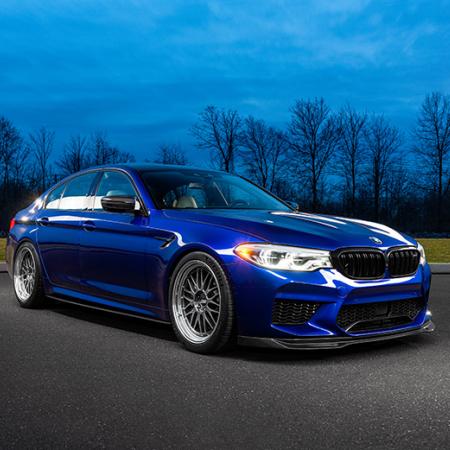WASHINGTON -- To understand why automakers are gung-ho about free trade talks between the United States and Europe, consider this number: $550,000,000.
That's how much BMW would save in duties every year if the United States and Europe got rid of their import tariffs on cars and trucks, Ludwig Willisch, the CEO of BMW North America, said in an interview today.
Earlier this year, some of President Barack Obama's top deputies started negotiating such a pact, called the Transatlantic Trade and Investment Partnership, with their EU counterparts. Although there is no guarantee the deal will reach the finish line, auto executives such as Willisch are already dreaming of using their savings to invest in technology, add content to their cars or cut prices.
"We have a lot of costs that are not beneficial to the consumer," Willisch told Automotive News. "If you take these away in a competitive world, the consumer will profit."
Champions of free trade
Willisch's comments came on the sidelines of a White House-organized event where top U.S. officials, including Secretary of State John Kerry, stressed the Obama administration's commitment to the free trade talks.
Automakers were prominently represented at the event, showing how they have emerged as one of the loudest champions of the free trade talks.
It has long been true that an elimination of U.S. tariffs would deliver massive savings to foreign luxury brands such as BMW, which incurs a 2.5 percent duty on the sports and luxury cars that it imports from Germany to the United States.
But increasingly, it is not just European-made cars that are at stake.
Willisch said that BMW now exports 70 percent of the output from the assembly plant it built two decades ago in Spartanburg, S.C.
The plant sends finished X3 and X5 SUVs to 140 countries and sends kits to six more countries for final assembly. It incurs a 10 percent tariff on light-duty vehicles sent to Europe, and the total cost has only grown as Europeans have developed a taste for SUVs.
"Using the United States as an export platform has been, and continues to be, the correct and profitable choice for BMW," Willisch said -- but with more free trade deals, the strategy becomes even more effective.
Willisch was flanked during the event by Obama's top negotiator, U.S. Trade Representative Michael Froman. Froman said the talks with Europe are moving along, but they are not as close to completion as the Pacific Rim trade deal called the Trans-Pacific Partnership, which he said is "in the endgame."
Same animal
There are still issues to resolve, Froman said. They likely include complaints from Detroit automakers and the UAW that Japan's car market is too closed to imports for the United States to lower its own tariffs under the Pacific Rim deal.
Both sets of talks are highly important to White House officials, who see them as crucial to keeping up with low-cost manufacturing hubs such as Mexico, which boasts the most free trade deals in the world and is one of the fastest-growing producers of cars and trucks.
Tennessee Gov. Bill Haslam, who also spoke at today's event, said Tennessee fought hard but lost out to Mexico for the assembly plant that Audi is building as a global export hub for the Q5 and other SUVs. Audi broke ground on the $1.3 billion plant this May in San Jose Chiapa, Mexico.
Audi has said one reason for the choice was that many of those SUVs will go to Europe, where U.S.-made vehicles face a 10 percent tariff; Mexican-made vehicles come into Europe duty-free. And considering that Mexico shares crash test standards and other regulations with Europe, the U.S. cost disadvantage may have been closer to 17 percent or 20 percent, Haslam said.
Willisch said that beyond lowering tariffs, BMW wants to align safety and environmental regulations between the U.S. and EU It makes no sense to have two sets of similarly strong standards, he said, when "the same animal -- called homo sapiens -- sits in the car and needs protection."









